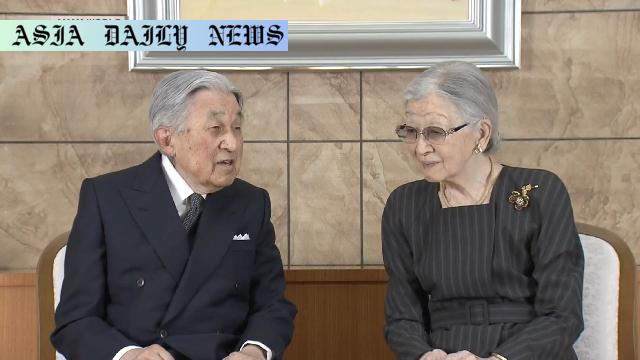Emperor Akihito hospitalized for further heart examination after signs of probable myocardial ischemia during regular checkup.
- Key Point 1: Emperor Emeritus Akihito will be hospitalized for detailed heart assessment following concerns of myocardial ischemia.
- Key Point 2: The 91-year-old underwent a coronary bypass in 2012 and was diagnosed with right heart failure in 2022.
- Key Point 3: Upcoming health assessments will further clarify his current cardiac state.

Introduction: Emperor Emeritus Akihito’s Health Examination
Emperor Emeritus Akihito, aged 91, is set to be hospitalized at the University of Tokyo Hospital for an advanced heart examination. This decision follows indications of potential myocardial ischemia detected during a routine checkup in April at the Imperial Household Hospital. Despite showing no outward symptoms like chest pain, further reexamination confirmed a probable cardiac condition, necessitating additional tests and assessments. The Emperor Emeritus’ upcoming hospitalization reflects the ongoing commitment to his health amidst his advanced age and medical history.
Past Heart Complications and Surgeries
The 91-year-old Emperor Akihito is no stranger to cardiac challenges. In 2012, the then 78-year-old monarch underwent a coronary bypass procedure after being diagnosed with angina. This successful surgery addressed significant blood flow concerns in his heart at the time. However, in July 2022, new complications emerged when Akihito was diagnosed with right heart failure. Since then, medication and fluid intake restrictions have been incorporated into his health regimen to manage the condition effectively. While such medical interventions highlight his resilience, these recurrent issues underscore the importance of ongoing medical vigilance.
The Current Health Concern: Myocardial Ischemia
Myocardial ischemia, the condition suspected in the Emperor Emeritus, occurs when restricted blood flow from the coronary arteries prevents sufficient oxygen from reaching the heart muscle. Left untreated, this condition can lead to severe complications. Although initial examinations reveal no immediate symptoms, the diagnosis indicates a significant probability of this issue affecting his well-being. A detailed diagnostic process at the University of Tokyo Hospital will provide greater clarity, ensuring effective intervention if necessary. This latest health development requires postponement of his planned visit to Hayama Imperial Villa in Kanagawa Prefecture, previously set for Thursday.
Historical Perspective and the Emperor’s Health Philosophy
Emperor Emeritus Akihito’s proactive approach to his health reflects his long-standing philosophy of balancing royal duties with personal well-being. Even into his retirement years, he has demonstrated a commitment to heeding medical advice, prioritizing chronic condition management, and maintaining his overall health. His history of engaging with medical experts and undergoing required procedures speaks to a prioritized effort to sustain a good quality of life. As a symbolic figure of Japan, his well-being continues to resonate deeply with the nation’s collective consciousness.
Impact of This Update on Japan
Emperor Emeritus Akihito’s health holds significant symbolic importance for Japan. His reign and retirement were marked by sincerity, humility, and a humanistic approach to monarchy that endeared him to the public. Given his towering influence and contributions to Japanese society, any news concerning his well-being is closely followed by citizens. During such sensitive times, Japan collectively stands in solidarity, wishing for his swift recovery. Additionally, these developments underscore the broader concerns of aging leaders and the medical care required for dignitaries post-retirement.



Commentary
Reflections on Emperor Akihito’s Commitment to Health
Emperor Emeritus Akihito has long been an emblem of perseverance, grace, and dedication, not only to his roles and responsibilities but also to his personal health. His decision to prioritize medical care and adhere to professional advice despite his symbolic royal status is both admirable and inspiring. This recent hospitalization, although concerning, reaffirms his commitment to taking the measures necessary to ensure well-being. It allows us to reflect on the intersection between duty, self-care, and the role of leadership in personal legacy preservation.
The Public Perspective on Imperial Health
The Japanese people hold a deep emotional connection to Emperor Akihito. His life, marked by historical transitions, modern diplomacy, and personal sensitivity, has cemented his place in Japanese cultural heritage. As such, news of his health directly impacts the public psyche. His history of overcoming previous medical challenges is both a source of inspiration and hope in the face of his current concerns. It is a reminder that even the most revered figures must contend with the universal realities of aging and health management.
Larger Implications of Leadership and Health
Leaders, whether active or retired, shoulder significant expectations, often prioritizing their responsibilities above personal needs. Emperor Emeritus Akihito’s continuing commitment to health serves as a powerful reminder of the importance of prioritizing well-being without hesitation. His hospitalization also shines a light on the developments in healthcare and its critical role in sustaining lives. This instance underscores the necessity of accessible and advanced healthcare for all—reminding the world of the ongoing need for innovation and care in medical practices.